How Does DiDi Restaurant Data Scraping Enhance Food Delivery and Pricing Strategy?
Mar 08

Introduction
The food delivery industry is transforming rapidly, driven by the increasing dominance of digital platforms that connect consumers with restaurants. Among these platforms, DiDi Food has established itself as a key player in multiple regions, including Mexico and Brazil. For businesses striving to maintain a competitive edge, leveraging DiDi Restaurant Data Scraping is crucial for accessing valuable insights into menus, pricing, and food delivery trends.
This blog delves into the significance of DiDi Restaurant Data Scraping, highlighting its role in extracting menu and pricing data, its advantages, and how businesses can strategically use this information to drive data-backed decisions.
Understanding the DiDi Food Ecosystem
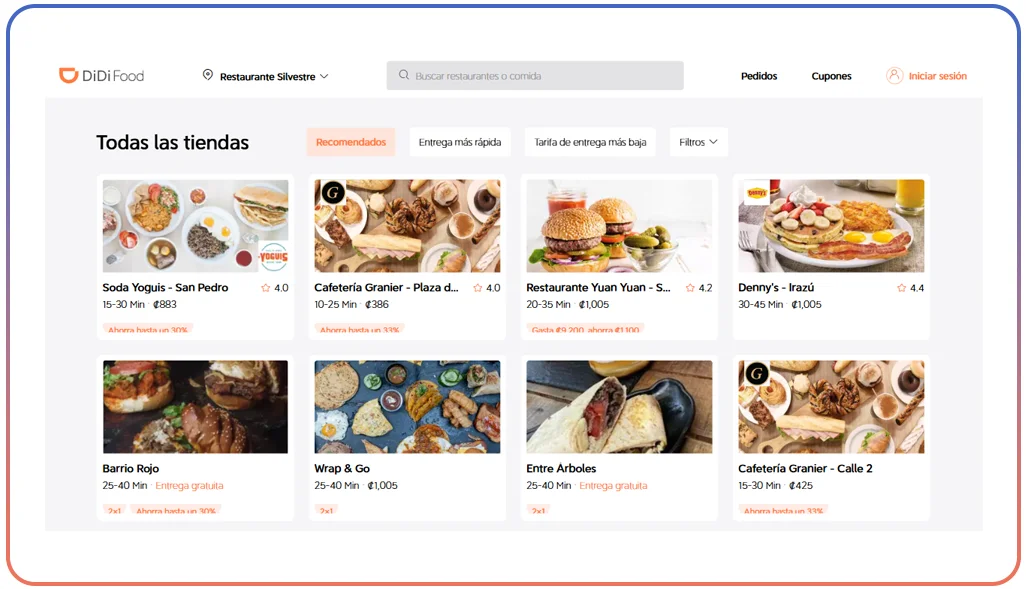
As a subsidiary of the Chinese multinational Didi Chuxing Technology Co., DiDi Food has rapidly strengthened its foothold across Latin America, with a significant presence in markets like Mexico and Brazil.
The platform seamlessly connects millions of consumers with a vast network of restaurant partners, facilitating an enormous data flow with immense strategic value. DiDi Food Delivery Data Extraction is a structured approach to capturing this data, offering businesses critical insights into market dynamics, competitive landscapes, and evolving consumer preferences.
Given its widespread reach and diverse restaurant portfolio, DiDi Food is a powerful resource for market intelligence. By leveraging Scraping Food Menu Restaurants Data In DiDi, businesses can effectively track competitor strategies, detect emerging food trends, and refine their menu offerings to align with shifting customer demands.
This data-centric strategy has become increasingly essential as the food delivery industry undergoes rapid transformation, emphasizing the need for real-time insights and agile decision-making.
The Strategic Value of Menu and Pricing Data
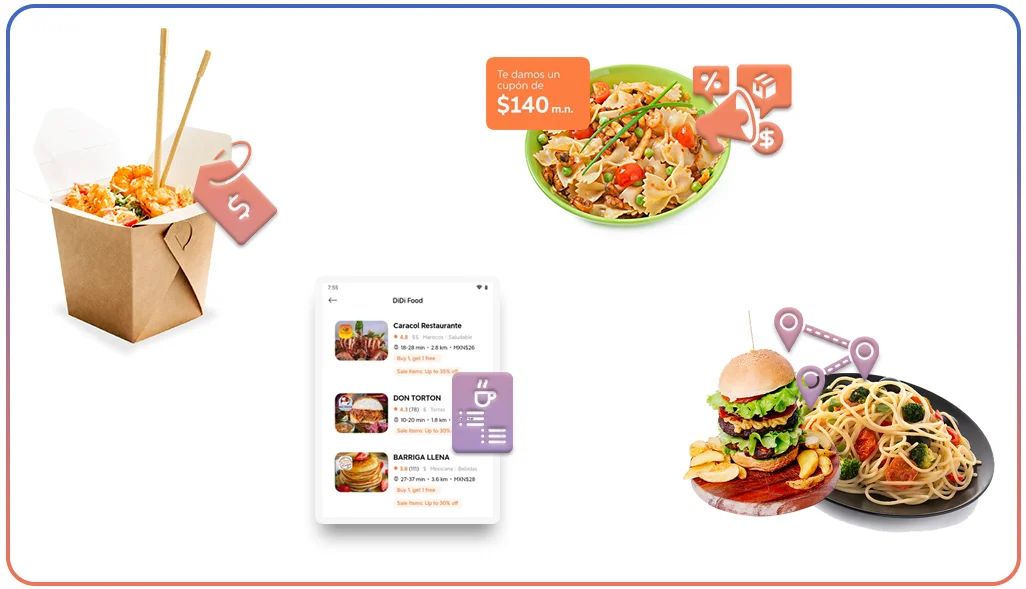
Restaurant menus and pricing structures are more than lists of items and their costs—they are strategic tools that define a brand’s market positioning, appeal to target customers, and shape competitive strategies.
By utilizing Extract DiDi Competitive Pricing Menu techniques, businesses can gain valuable insights into competitor pricing models, menu structures, and market responsiveness, allowing them to stay ahead in a dynamic industry.
Key strategic takeaways from analyzing menu and pricing data include:
- Pricing Strategies: Examining how competitors price similar menu items helps businesses adjust their pricing to remain competitive while maximizing profitability.
- Menu Composition: Understanding dish selection, ingredient pairings, and menu categories provides insights into emerging food trends and evolving consumer preferences.
- Promotional Patterns: Tracking price fluctuations over time reveals key promotional tactics, seasonal discounts, and limited-time offers.
- Regional Variations: Identifying pricing and menu differences across locations helps businesses customize offerings based on local tastes, purchasing power, and economic conditions.
With Competitive Pricing Used For DiDi Data Scraping , businesses can make informed, data-driven decisions about their pricing strategies, ensuring they maintain a competitive edge while optimizing revenue potential.
Technical Approaches to DiDi Restaurant Data Scraping

Extracting valuable data from DiDi's platform requires advanced technical methodologies to navigate its structural complexities and retrieve the necessary information.
By leveraging a DiDi Food Delivery Scraping API , businesses can systematically collect, process, and analyze data in a structured and automated manner, ensuring accuracy, consistency, and reliability in their data acquisition workflows.
To achieve efficient data extraction, several technical approaches can be utilized:
Web Scraping Solutions
Web scraping is a widely adopted technique that involves deploying automated tools to extract data from websites by parsing their HTML structures and identifying relevant information. When applied to DiDi’s platform, this approach enables the extraction of key business insights such as menu items, pricing details, restaurant information, and customer reviews. Advanced web scraping solutions can efficiently navigate multi-page structures, handle authentication processes, and adapt to dynamic website changes, ensuring seamless data retrieval.
API Integration
Although DiDi does not offer a publicly accessible API for direct menu data extraction, developers can build custom integrations that emulate user interactions with the platform. A robust DiDi Food Delivery Scraping API facilitates structured and automated data access, allowing businesses to extract relevant information efficiently. This approach enhances data collection by minimizing inconsistencies and improving the speed of information retrieval.
Mobile App Analysis
Given that many users engage with DiDi Food through mobile applications, Mobile App Scraping Used For DiDi Data has emerged as a crucial technique for comprehensive data extraction. This method involves analyzing the data packets exchanged between the mobile app and DiDi’s servers, offering access to valuable insights that may not be readily available via standard web interfaces.
By implementing these technical approaches, businesses can harness the full potential of DiDi Restaurant Data Scraping , drive data-driven decision-making, and gain a competitive edge in the food delivery industry.
Geographical Focus: Mexico and Brazil
DiDi Food has solidified its presence in Latin America, with Mexico and Brazil standing out as its primary markets. These regions boast vibrant food delivery landscapes shaped by diverse culinary traditions and evolving consumer preferences.
DiDi Food Mexico Restaurant Menu Data Scraping
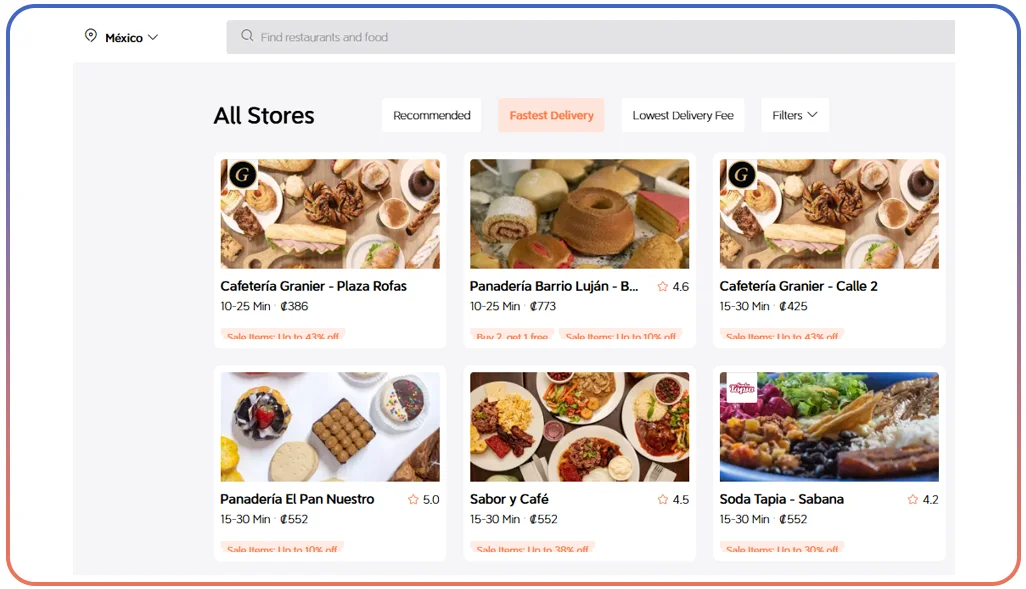
Enables businesses to navigate one of the region's most dynamic food delivery markets. Mexico’s food scene combines traditional cuisine, global restaurant chains, and innovative fusion concepts.
By leveraging data scraping techniques, businesses can:
- Track the popularity of various cuisine types across different Mexican cities.
- Monitor price variations across key menu categories.
- Identify regional taste preferences and local specialties.
- Analyze promotional strategies tailored to the Mexican market.
DiDi Food Brazil Restaurant Data Scraping Services

Provide crucial insights into Brazil’s distinct food delivery ecosystem. Brazil’s market operates under culinary traditions and consumer behaviors, requiring businesses to access market-specific data for strategic decision-making.
Through data-driven analysis, companies can better understand competitive dynamics, pricing structures, and emerging food trends in Brazil’s growing food delivery sector.
Ethical and Legal Considerations
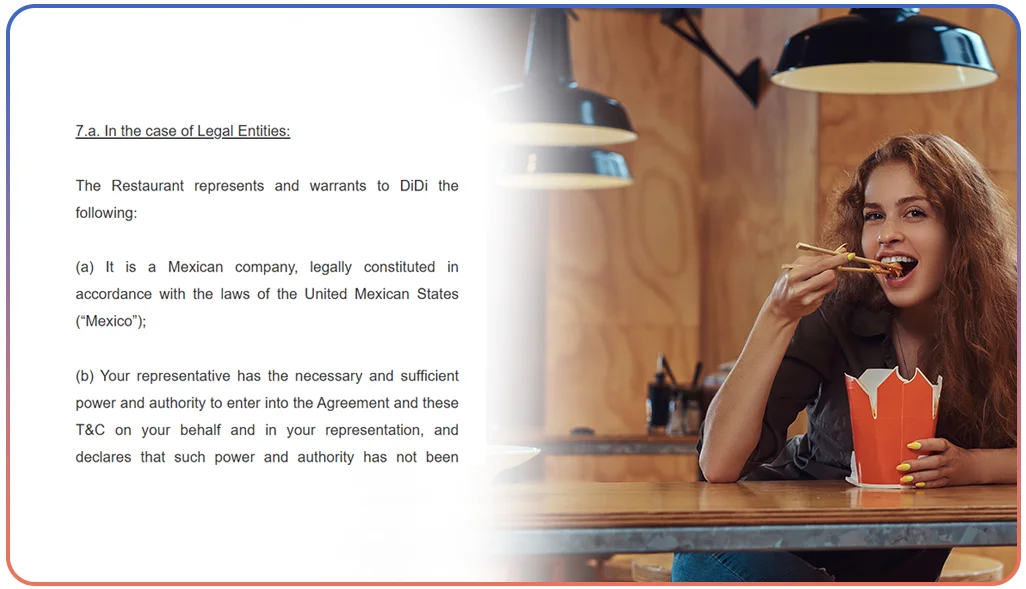
Leveraging Food Data Scraping Services can provide businesses with valuable insights, but it is crucial to approach data collection with a strong commitment to ethical and legal standards.
A responsible data scraping strategy should prioritize the following:
- Terms of Service Compliance: Ensuring all data extraction aligns with DiDi's platform terms of service and adheres to its usage policies.
- Data Privacy Protection: Avoiding the collection of personal or sensitive consumer information and ensuring that all data usage remains ethical and compliant.
- Intellectual Property Respect: Upholding the intellectual property rights of DiDi and its restaurant partners to prevent any unauthorized use of proprietary content.
- Rate Limiting Best Practices: Implementing appropriate rate limits to maintain platform stability, prevent server overload, and avoid disruptions to the service.
A trusted DiDi Restaurant Data Scraping Company will place these ethical considerations at the core of its operations, employing responsible techniques that extract valuable business intelligence while remaining fully compliant with platform policies and legal frameworks. This approach safeguards businesses from potential legal risks and ensures the long-term sustainability of data-driven insights.
Technical Challenges and Solutions
Implementing DiDi Restaurant Data Scraping effectively involves several technical hurdles that must be tackled to ensure seamless and accurate data collection. Addressing these challenges requires strategic solutions to maintain reliability and efficiency.
Anti-Scraping Measures
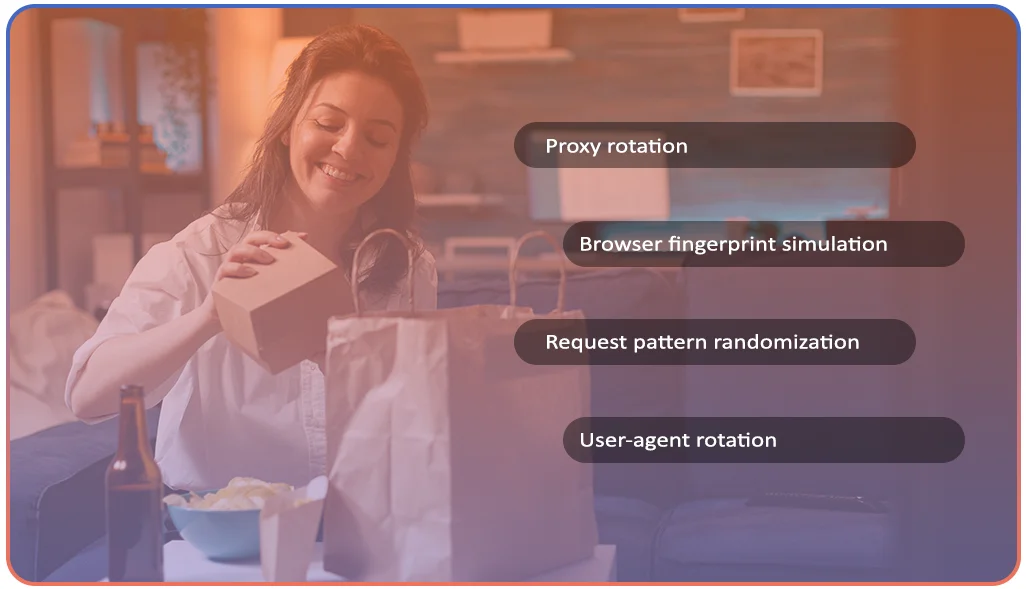
DiDi has implemented various anti-scraping mechanisms like most digital platforms to safeguard its data and ensure smooth system performance. These protective measures include IP blocking, CAPTCHA challenges, and rate limiting, which can hinder data extraction efforts.
To successfully bypass these obstacles, advanced techniques are essential, such as:
- Proxy rotation: Distributes requests across multiple IPs to reduce the risk of being blocked.
- Browser fingerprint simulation: Mimics actual user behavior to avoid detection.
- Request pattern randomization: Makes scraping activity less predictable.
- User-agent rotation: Simulates different browsers and devices, making requests appear more natural.
Data Structure Variability
DiDi's platform exhibits structural variations in data across different regions, restaurant types, and platform updates. These inconsistencies can make Scraping Food Menu Restaurants Data In DiDi challenging, as the format may change frequently.
Adaptive parsing techniques must be employed to maintain accurate and consistent data extraction. These techniques dynamically adjust to structural modifications, ensuring reliable data retrieval despite ongoing platform changes.
Scale and Performance
For businesses that require extensive market insights, scraping vast amounts of data across multiple locations introduces challenges related to scalability and performance.
Handling large datasets efficiently demands a robust scraping infrastructure, including:
- Distributed scraping architectures: Balances the workload and enhances speed.
- Optimized data storage solutions: Manages and processes large volumes of extracted information.
- Efficient processing pipelines: Streamlines data extraction, transformation, and storage without performance bottlenecks.
By implementing these solutions, businesses can extract and analyze DiDi Restaurant Data at scale, ensuring comprehensive market coverage without compromising system efficiency.
The Role of Professional Services
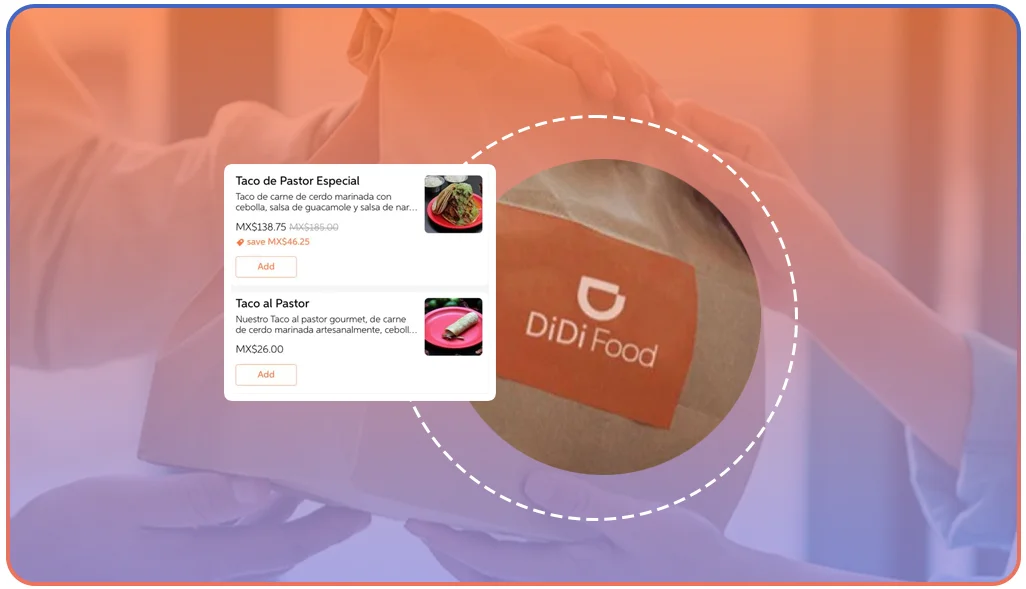
Due to the technical complexities and ethical considerations associated with data scraping, businesses often turn to professional service providers to ensure accuracy, compliance, and efficiency.
Choosing the Best DiDi Restaurant Data Scraping Company can provide businesses with several key advantages:
- Technical Expertise: A reputable provider brings specialized knowledge in web scraping techniques, data parsing, and API integration, ensuring seamless data extraction from DiDi’s platform.
- Ethical Compliance: Compliance with platform policies and legal frameworks is crucial. Reliable providers adhere to responsible data collection practices, mitigating legal risks and maintaining ethical integrity.
- Scalable Infrastructure: Handling large-scale data collection requires a robust infrastructure. A professional service ensures efficient data retrieval without performance bottlenecks.
- Data Processing Capabilities: Extracting raw data is just the first step. Advanced analytics and data processing services help transform this information into valuable business insights, enabling data-driven decision-making.
- Ongoing Support: DiDi’s platform structure and policies may change over time. A dedicated service provider offers continuous monitoring, real-time adjustments, and proactive adaptation to these updates.
By collaborating with an experienced data scraping provider, businesses can leverage high-quality, structured data without the need to build and maintain their scraping infrastructure, allowing them to focus on strategic decision-making and growth.
How Web Data Crawler Can Help You?
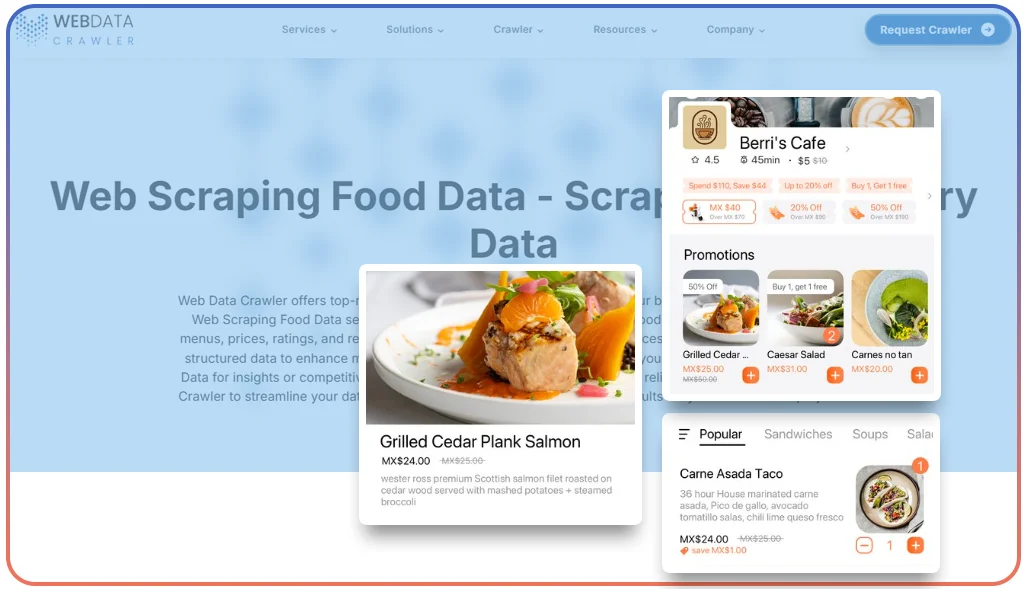
We provide Food Data Scraping Services to help businesses gain valuable insights into the competitive food delivery market. Our DiDi Restaurant Data Scraping expertise ensures seamless extraction of crucial restaurant data.
- Our DiDi Food Delivery Scraping API accurately captures menu items, pricing, restaurant details, and customer reviews.
- We utilize advanced Mobile App Scraping Used For DiDi Data to extract information efficiently from both web and mobile platforms.
- Our DiDi Food Mexico Restaurant Menu Data Scraping offers insights into local market trends and pricing strategies.
- We provide DiDi Food Brazil Restaurant Data Scraping Services to analyze regional competition and customer preferences.
- As a leading DiDi Restaurant Data Scraping Company , we transform raw data into actionable insights for strategic decision-making.
Conclusion
In the fast-paced food delivery market, having access to accurate data is essential for making informed decisions. DiDi Restaurant Data Scraping equips businesses with critical insights to refine menu offerings, optimize pricing, and enhance promotional strategies.
Staying ahead of the competition requires leveraging data to identify opportunities for growth and differentiation. Implementing Competitive Pricing Used For DiDi Data Scraping helps businesses understand market trends, adjust strategies, and strengthen their position.
Partnering with us ensures you get customized solutions designed to extract valuable insights from Scraping Food Menu Restaurants Data In DiDi . Our experts are ready to help you transform raw data into actionable intelligence that drives success.
Don't miss the opportunity to optimize your strategy. Contact Web Data Crawler to explore our specialized data extraction services.